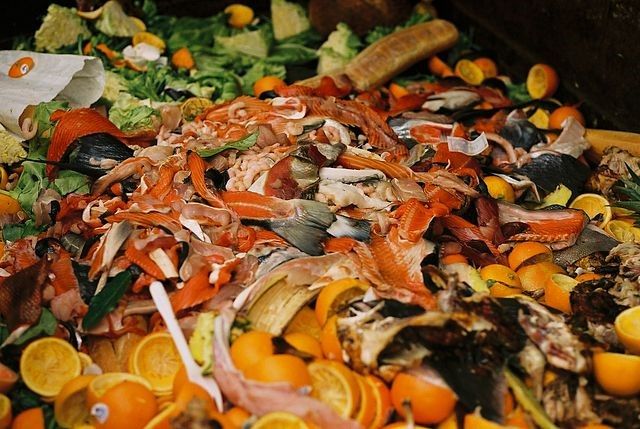
This article originally appeared on the Thompson Reuters Foundation and Zilient websites.
Despite the central role food plays in all of our lives, we let a great deal of it go to waste. About one-third of all food produced in the world goes uneaten each year – a fact that harms our climate, costs the global economy billions of dollars and strains natural resources like water and land. Given the enormous impacts, it’s clear why the United Nations’ Sustainable Development Goals issued Target 12.3’s call to halve food waste and reduce food losses by 2030.
But with 13 short years to go, is the world doing enough?
According to a new report from Champions 12.3, the progress is promising. Countries or regional blocs that have set specific food loss and waste reduction targets cover an estimated 28 percent of the world’s population. At the same time, nearly 60 percent of the world’s 50 largest food companies have set targets to reduce food loss and waste. More than 10 percent of the 50 largest companies also now have active programs to waste less food.
Meanwhile, initiatives have taken off in the European Union, United States, Japan, Saudi Arabia, United Arab Emirates and in other countries that expand public-private partnerships, government policies and consumer campaigns aimed at reducing food loss and waste.
But it’s not all roses. Only a few countries, accounting for just 7 percent of the world’s population, currently measure and publicly report on how much food is lost or wasted within their borders.
These latest figures beg the question: Can the world really cut global food loss and waste in half by 2030? The answer is yes – but only if many more governments and companies set ambitious targets, measure this inefficiency and take action to reduce food loss and waste. To my mind, there are three immediate challenges that require a collective approach.
The first is the importance of consumer engagement. In the United Kingdom, where I was head of WRAPfor a number of years, we successfully worked with the government to help households cut their food waste by 21 percent over five years. That’s a huge achievement.
Helping people to change their habits at home takes time and requires a range of different approaches. It’s also critical to have good engagement with retailers and many others. While a 21 percent reduction is impressive, it’s not 50 percent. It will be a huge challenge to get enough households worldwide to do things differently, and it’s especially hard to make that change sustainable and long-lasting. But finding new ways to engage consumers to waste less food is also a real opportunity to help individuals live more sustainably and save money.
The second is that this needs to be a movement which results in people thinking differently about food. In many countries and urban areas, food is cheap, and in the minds of many, it therefore carries little value and is disposable. We need to change how people think about food and it’s clear that there isn’t going to be one solution.
Rather, solutions will vary around the world for different cultures and contexts. And because of that, we must take a “big tent” approach to adopting new ways of cutting food loss and waste. This is an opportunity to lift up many voices and to create the kind of movement that has staying power because it’s diverse.
The third is going to be driving real action, not just interest and awareness. We know there is a strong business case for action. There is also a moral imperative, which I know matters to a lot of leaders across the private and public sectors. It’s hard not to feel what a travesty it is that more than a billion tons of food goes uneaten while nearly 800 million people are malnourished. What ultimately will make a difference is bold action. As the new report states, that means big acts by big players, as well as millions of acts by everyone from farmers to consumers.
What’s clear on this World Food Day, observed on October 16, is that it is going to be tough to halve food loss and waste, but it is possible. There have already been some notable achievements and good progress has been made. Now is the moment to recognize that we have a collective responsibility to act and we each are part of the solution.
Liz Goodwin is Senior Fellow and Director, Food Loss and Waste at World Resources Institute. She is also a member of Champions 12.3, a coalition of leaders committed to achieving the Sustainable Development Goals’ Target 12.3 on food loss and waste.